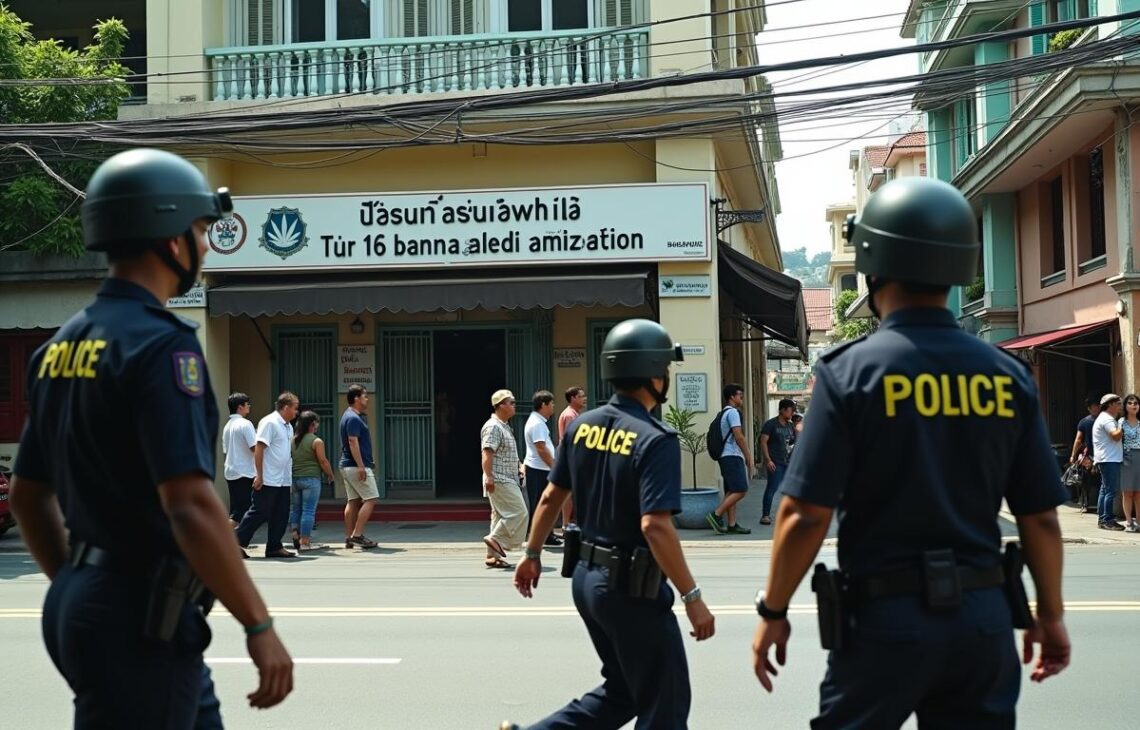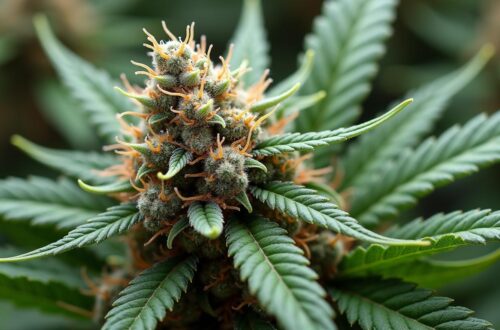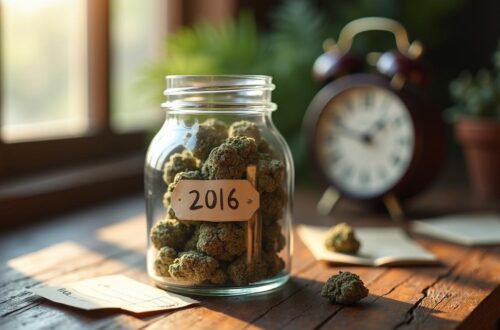Thailand’s marijuana laws have seen dramatic changes since becoming Asia’s first country to legalize medical cannabis in 2018. The country’s original progressive stance on marijuana regulation has moved substantially. Thailand saw explosive growth after cannabis decriminalization in June 2022, and more than 11,200 dispensaries got approval nationwide.
The marijuana laws in Thailand in 2025 have created systemic problems in what was once a thriving industry. New regulations now require customers to show prescriptions from medical professionals to purchase cannabis. This policy reversal deeply affects Thailand’s cannabis market. The University of Thai Chamber of Commerce estimated the market could reach $1.2 billion annually by 2025, with some projections going up to $1.8 billion. These changes could lead to a 90% drop in licensed cannabis shops across Thailand. This piece gets into the rise of Thailand’s marijuana legalization, current legal frameworks, regulatory requirements, and what it all means for the economy and society under these changing policies.
Thailand Marijuana Legalization Timeline
Thailand’s cannabis legislation represents one of the most dramatic changes in Southeast Asia. The country went through strict prohibition, trailblazing reform and a complete reversal that showed different approaches to marijuana regulation.
From criminalization to medical use (1935–2018)
Thailand took its first stance against cannabis with the Cannabis Act B.E. 2477 in 1934. This act banned cultivation, possession, importation, exportation, sales, and distribution of cannabis plants and parts. Research and medical purposes had exemptions despite this prohibition. Thailand played an active role in international narcotics control efforts during the mid-20th century. The country signed the League of Nations’ International Opium Convention and later joined the United Nations’ Single Convention on Narcotic Drugs.
The rules became stricter in 1979. The Narcotics Act of Thailand B.E. 2522 labeled both cannabis and hemp as Category 5 narcotics and imposed criminal penalties for consumption and possession. This classification stayed the same for almost four decades. Thailand made a groundbreaking move in 2018 to become Southeast Asia’s first nation to legalize cannabis for medical use. Licensed medical cannabis became legal under certain conditions through this milestone amendment to the Narcotics Act.
Decriminalization in 2022 and its implications
Thailand reached another milestone in June 2022 as Asia’s first country to fully decriminalize cannabis. Cannabis was removed from the narcotics list, which allowed cultivation and trade of marijuana products. This decision led to the release of about 4,200 prisoners with cannabis-related convictions.
The cannabis industry grew faster with thousands of dispensaries opening across the country, especially in tourist areas. Chiang Mai and Bangkok hosted cannabis festivals. The government also planned to give one million cannabis plants to households, making cannabis a potential cash crop for farmers.
2025 policy reversal and reclassification of cannabis
Thailand’s marijuana policies changed dramatically in June 2025 after political reshuffling and the pro-cannabis Bhumjaithai Party left the ruling coalition. Health Minister Somsak Thepsuthin banned recreational cannabis sales and required doctor’s prescriptions for retail purchases.
The new rules allowed only licensed Thai, Chinese, or dental medicine practitioners to write prescriptions limited to 30-day supplies. The rules also banned online sales, advertising, consumption in dispensaries, and use near schools or religious sites. People who break these rules face up to one year in prison or a 20,000-baht fine (about $614).
This sudden change created uncertainty for Thailand’s cannabis industry. The Thai Chamber of Commerce had estimated its worth at $1.2 billion by 2025. Business owners were shocked by this reversal. One dispensary worker said: “This is my main source of income… Many shops are probably just as shocked because a lot of them invested heavily”.
Current Marijuana Laws in Thailand (2025)
Thailand’s cannabis landscape went through a dramatic shift in mid-2025. The country’s brief experiment with widespread marijuana access came to an end when the government introduced tough new regulations that altered the map of what’s legal now.
Is marijuana legal in Thailand now?
Thailand’s cannabis laws exist in a complex state. The drug isn’t completely banned, but people can only use it for medical reasons. Thailand’s Ministry of Public Health made a significant move in June 2025 by classifying cannabis flower as a controlled herb. This change happened after the pro-cannabis Bhumjaithai Party left the ruling coalition, which led the government to tighten its grip on regulations. Medical access stayed legal but under strict control, while recreational use became prohibited.
Medical use: what’s allowed and what’s not
Getting medical cannabis requires a prescription from Thailand’s licensed practitioners in traditional medicine, Chinese medicine, pharmacy, or dentistry. Each prescription must clearly state the treatment purpose and can’t exceed a month’s supply – roughly 30 grams per month according to unofficial guidelines. The Department of Thai Traditional and Alternative Medicine recognizes over 15 qualifying conditions that include cancer, asthma, chronic pain, and depression. Patients must get their cannabis products from farms with Good Agricultural and Collection Practices (GACP) certification.
Recreational use: legal gray areas and new restrictions
Both locals and tourists can’t legally use marijuana recreationally. The new rules ban cannabis advertising, block sales through vending machines or online platforms, and stop sales near temples, parks, and educational institutions. Licensed shops must keep detailed records of their sales and expect regular inspections. Breaking these rules could mean up to a year in jail or a 20,000 baht fine (about $614).
Age and usage restrictions
You must be at least 20 years old to possess cannabis. Pregnant or breastfeeding women can’t use cannabis unless their doctor specifically allows it. Tourists need a valid medical prescription from Thailand or their home country before they can legally buy cannabis.
Public consumption and penalties
The law comes down hard on public cannabis use. Anyone caught smoking in public places breaks the Public Health Act of 1992 and could face fines up to 25,000 baht (around $700) or spend three months in jail. Taking any cannabis product in or out of Thailand is a crime. Tourists should be extra careful – breaking these laws could mean paying fines or getting kicked out of the country.
Regulations for Cultivation, Sale, and Distribution
Thailand strictly controls who can participate in its cannabis industry and under what conditions. The government focuses on medical-grade quality standards and limits foreign influence in the market.
Who can grow cannabis in Thailand?
You must register with Thailand’s Food and Drug Administration to legally grow cannabis. Commercial growers need Good Agriculture and Collection Practices (GACP) certification from the Department of Thai Traditional and Alternative Medicine by 2025. This three-year certification will give a quality-controlled cultivation process. Growers without certification face legal consequences. Home growers should sign up through the “Plookganja” app and provide their planting date, source, purpose, and plant count.
Licensing requirements for dispensaries
Every dispensary needs a cannabis distribution license from the FDA. The latest regulations from June 2025 require licensed dispensaries to work as medical facilities instead of retail stores. Businesses need to keep complete records of their cannabis sources, storage amounts, and distribution channels. They must track and report their inventory and sales monthly. Two compliance failures lead to permanent license cancelation.
Restrictions on foreign ownership
Thailand marijuana laws stop foreign entities from controlling cannabis businesses. Foreign ownership cannot exceed 49%, which means Thai shareholders must own the majority stake in any cannabis venture. This protects local companies from competing with resource-rich foreign corporations. The Foreign Business Act also restricts cannabis activities to Thai nationals.
Cannabis extracts and THC limits
Cannabis extracts with more than 0.2% THC are still Category 5 narcotics. You need medical prescriptions to use these products legally. Every cannabis product, including infused drinks, must stay below 0.2% THC by weight to avoid being called a narcotic. Since February 2024, having more than 30 grams or 30 milliliters means intent to distribute.
New prescription rules for dispensaries
The 2025 regulations say all cannabis purchases need valid medical prescriptions from licensed practitioners. Medical doctors, traditional Thai medicine practitioners, dentists, and licensed folk healers can write prescriptions. Each prescription must list exact treatment amounts and cannot exceed 30 days of use. Dispensaries must check prescriptions and keep records of all sales. Prescribers must use the standard Phor Thor 33 form that has patient details and medical purpose.
Social and Economic Impact of Thailand Cannabis Laws
Thailand’s cannabis sector has seen dramatic changes due to recent policy moves. These changes have affected Thai society in ways no one expected.
Effect on small businesses and local farmers
Thailand’s cannabis industry once had thousands of dispensaries that created opportunities for entrepreneurs and farmers. Many people put their life savings into this business. The policy reversal now threatens to shut down most of the 20,000+ cannabis-related businesses. Small farmers who switched from regular crops to cannabis now have empty fields and growing debt. Most of them can’t get the required GACP certification.
Tourism and cannabis: what changed?
Tourism makes up almost 18% of Thailand’s GDP, so the cannabis policy reversal has huge economic effects. Local economies used to make billions from cannabis tourism. Tourism leaders actually welcomed the new rules. They believe these changes help Thailand’s image as a family destination. Asian tourists, who make up 70% of Thailand’s visitors, often felt uneasy about easy cannabis access.
Public health concerns and youth access
Health statistics show worrying trends. Cannabis use among Thais aged 18-65 jumped from 2.3% in 2019 to 25% by mid-2023. The numbers look worse for 18-19 year-olds, where use went up from less than 1% to about 10%. Health problems related to cannabis among young people increased 5-6 times after legalization.
Smuggling and international scrutiny
Thailand faced embarrassment from cannabis smuggling cases. A UK-Thailand operation caught people trying to smuggle two tons of cannabis by air in February. British authorities have arrested over 50 of their citizens for cannabis smuggling since July 2024. These cases hurt Thailand’s reputation and its relationships with other countries.
The role of politics in shaping cannabis policy
Politics ended up driving Thailand’s cannabis policy reversal. The Bhumjaithai Party pushed for decriminalization in 2022, selling cannabis as a money-maker for farmers in its northeastern base. The Pheu Thai-led government brought in restrictions after this party left the ruling coalition in mid-2025. This shows how cannabis policy became more about politics than public health or economic benefits.
Thailand Marijuana Laws Summary
Thailand’s cannabis experience expresses how volatile cannabis policies can be in emerging markets. The country went from groundbreaking decriminalization to strict medical-only rules. This quick reversal shows how legal frameworks can change overnight. The 2025 reclassification destroyed the recreational market that had a brief run throughout the country.
The new regulations hit small business owners and farmers the hardest. Many put their savings into what promised to be a billion-dollar industry. Now they must deal with a completely different legal world that demands prescriptions and strict growing standards.
Tourism plays a vital role in Thailand’s economy and shaped many policy decisions. The officials chose to protect the country’s family-friendly image over potential profits. This decision made sense given Thailand’s dependence on conservative Asian tourists.
Public health numbers played a big part in this transformation. Young Thais started using cannabis at alarming rates. Health concerns grew and international smuggling became common. These issues pushed the government toward tighter controls.
The political scene ended up deciding the outcome. The pro-cannabis Bhumjaithai Party left the ruling coalition. The new government was quick to put restrictions in place. This shows how cannabis policies often reflect political moves rather than consistent public health strategies.
Thailand’s story warns entrepreneurs, investors, and policymakers everywhere. Countries that think about cannabis reform should look closely at what happened here. A lasting cannabis policy needs to balance public health concerns with economic opportunities and social factors – something Thailand still tries to achieve.






